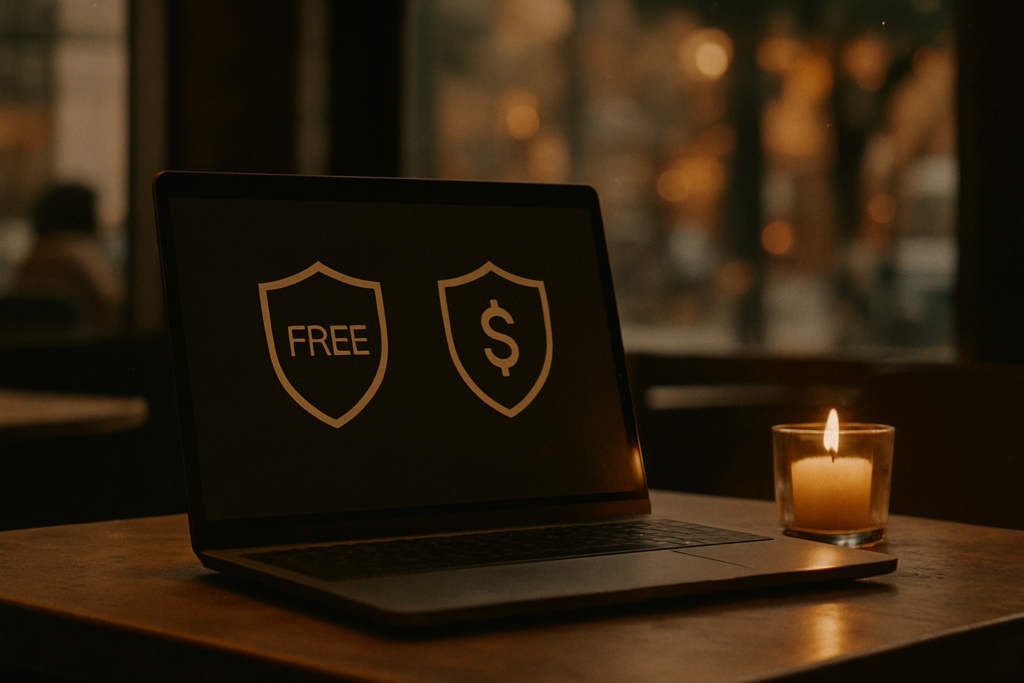What VPNs Actually Do (And Don’t)
A VPN isn’t a magic cloak. It does three main things: encrypts your internet traffic, masks your IP address to make it look like you’re somewhere else, and tunnels your connection through a secure server. That’s the core job. And when used properly, it works well especially on public Wi Fi or when you want to access region locked content.
But here’s where people get it wrong: a VPN does not make you invisible or anonymous in the full sense. It doesn’t stop trackers on websites, it doesn’t secure the apps you use outside the tunnel, and it definitely doesn’t hide your activity from every kind of surveillance especially if you’re logging in to your own accounts while browsing. It’s privacy support, not privacy armour.
And there are limits. A VPN won’t protect you from malware, prevent phishing, or save you from bad digital hygiene. It’s like a good door lock not a full security system. That said, if you’re expecting full internet anonymity just by flicking a VPN switch, you’re going to be disappointed.
If you’re curious about what’s real and what’s marketing fluff, check out VPN Myths Explained.
Free VPNs: What You’re Really Paying
Free VPNs might not ask for your money, but they’re far from free. In most cases, your data becomes the currency. Many free services track your browsing patterns, collect metadata, and may even sell this information to advertisers or third party brokers. It’s how they keep the lights on.
Performance is usually a trade off too. With free VPNs, expect slower speeds, limited server access, and data caps that cut you off mid stream. The experience can be jittery, laggy, and borderline unusable for anything beyond basic browsing.
Then there’s the gray area of privacy policies. Some free VPN providers log your activity even your location and connection times. That’s a problem when privacy is the very reason people use a VPN in the first place. And don’t hold your breath for transparency; many of these services avoid third party audits altogether, so there’s no real way to hold them accountable.
Bottom line: you’re rolling the dice. You might save a few bucks, but the trade offs in speed, privacy, and security can cost more than you think.
Paid VPNs: What’s Under the Hood

Paying for a VPN doesn’t just mean fewer ads it usually means you’re getting serious infrastructure and features built for long term privacy and performance. One of the first things worth paying for is a reliable kill switch. It cuts your connection entirely if the VPN drops, keeping your data from slipping out unprotected. Then there’s the no logs policy. But not all claims are equal look for services that have been independently audited to back that up.
Speed and server quality also matter. Premium VPNs run on dedicated, high speed servers instead of jammed up free ones. You’ll get access to a wide server network, which isn’t just about picking a country it’s about avoiding congested connections and throttling. Daily performance from a paid VPN should just work you shouldn’t even have to think about it.
The trustworthy ones are usually open with their business models. Some even open source their apps, which is rare but a good sign. Responsive customer support doesn’t hurt either especially when something breaks.
Still, paying doesn’t mean you’re totally safe. There are plenty of paid options with shady tactics. Flashy marketing, fake reviews, and empty privacy promises are all over the place. Before buying, ask basic questions: Do they tell you what country they’re based in? Are their audits current? Can you easily cancel?
A legit VPN provider won’t hide behind buzzwords. They’ll show you what they protect, how they do it, and why it costs what it does.
Picking Smart: What Actually Matters
Not every VPN is built for the same job. If you stream a lot, prioritize a provider with fast servers and solid support for platforms like Netflix and Hulu. If privacy is top of your list, make sure they’ve got airtight no logs policies, regular third party audits, and are based in a country with strong privacy laws. For travelers, look at mobile app stability and availability of servers in multiple regions to avoid geo restrictions.
Then there’s the fine print go beyond the homepage promises. Where a VPN company is headquartered matters. Some regions have laws that can force providers to hand over user data, even if they claim not to store any. Check whether they offer a clear audit trail and a straightforward refund policy (not the buried in terms kind).
And let’s address the elephant in the room: so called “lifetime deals.” They’re usually too good to be true. Most either throttle performance, oversell to the point of server congestion, or disappear entirely after a year or two.
Bottom line: you don’t need to go premium just for the sake of it. But if you rely on a VPN often, aim for a service that balances affordability with transparency, reputation, and features you’ll actually use. Spend smart, not just more.
Final Takeaways: Privacy Isn’t Free
Free VPNs might sound like a great deal, but there’s always a trade off. You may not be paying with cash, but you’re often paying with your data, your time, or your frustration. Many free services collect usage or connection data. Some even log what you’re browsing. Others throttle your speeds so hard that streaming or even basic browsing turns into a waiting game. Peace of mind? That’s out the window if you can’t trust what the VPN is doing behind the scenes.
Still, a free VPN isn’t always off limits. If you’re just trying to skirt a paywall or check a geo locked news story once in a while, some free options from reputable providers can get the job done. But if privacy, performance, or consistent use is the goal free tools aren’t where to bet your trust.
So how do you actually pick the right one? Ignore ads, ignore every listicle promising “30 Best VPNs of 2024.” Decide based on what you need. Are you streaming? Traveling? Protecting sensitive work data? Then look for fast, transparent, audited providers. Privacy and performance come at a cost but it’s better than gambling with your digital footprint.
For a closer look at myths and facts, visit the Deep Dive: VPN Myths Explained.



